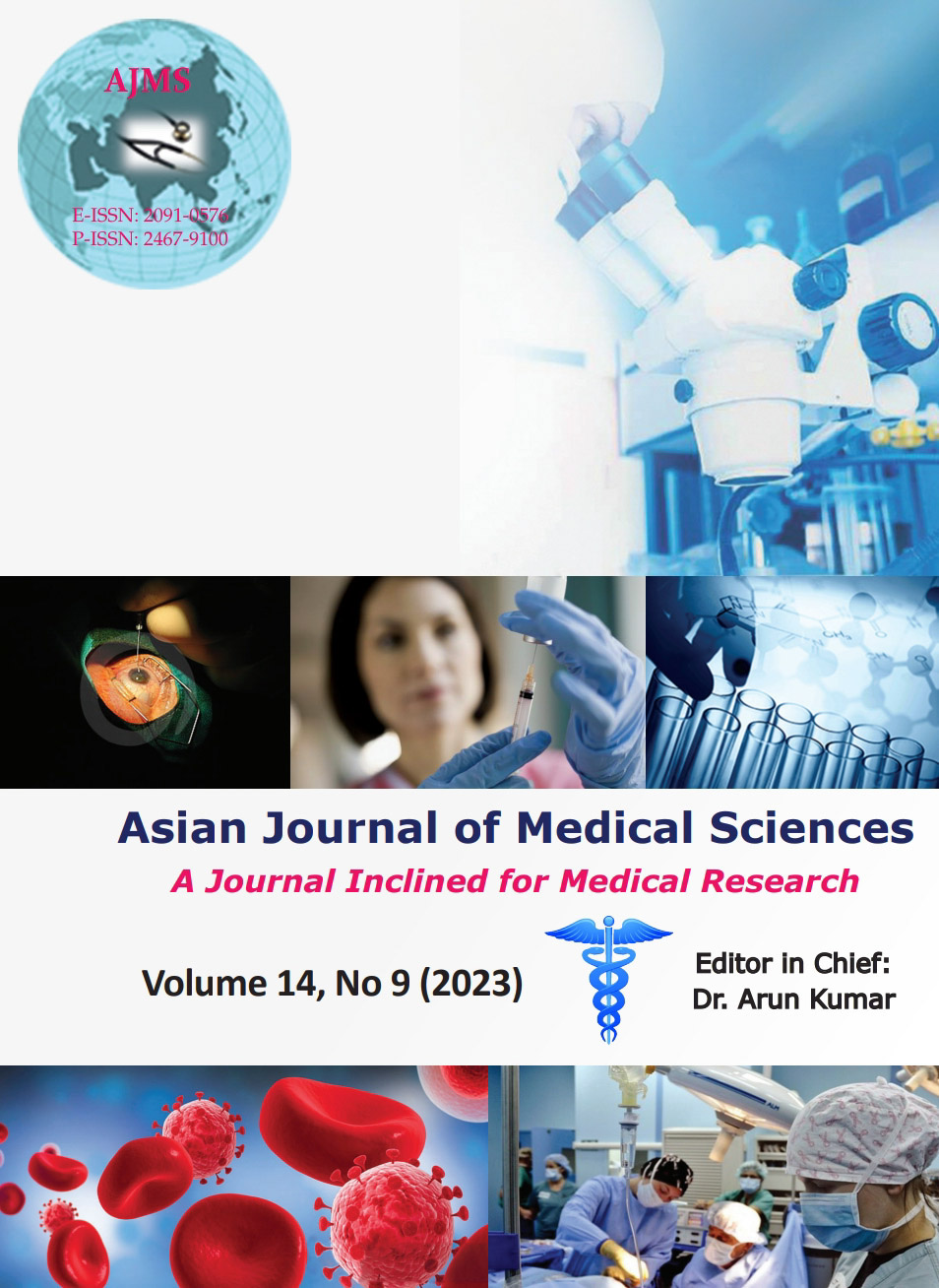Association of metabolic syndrome with hypothyroidism and hyperuricemia: A cross-sectional study in a tertiary care hospital, Kolkata, West Bengal
Keywords:
Hyperuricemia; Hypothyroidism; Metabolic syndrome; ObesityAbstract
Background: Metabolic Syndrome (MetS) (Syndrome X, insulin resistance syndrome, MetS) consists of a constellation of metabolic abnormalities which include central obesity, hyperglycemia, insulin resistance, high triglycerides, low high-density lipoprotein (HDL) cholesterol, and hypertension. Obesity is a critical component of MetS. It causes alteration in the thyroid hormones and hyperuricemia. Furthermore, insulin resistance seen in MetS causes decreased uric acid excretion.
Aims and Objectives: To study the association of MetS with hypothyroidism and hyperuricemia.
Materials and Methods: A cross-sectional study was conducted among patients from the outpatient department of General Medicine, IPGME and R, Kolkata from January 2012 to June 2013. A total of 112 patients, consisting of 53 patients with MetS and 59 patients without MetS were selected. Patients’ history, clinical and laboratory findings were recorded and data were analyzed.
Results: Majority (66%) of the patients with MetS were female and the rest were male. The mean Body mass index of patients with MetS was 33.31±4.36 (Mean±SD) kg/m2 and without MetS was 25.21±2.62 (Mean±SD) kg/m2. A significant association was observed between weight, height, waist circumference, fasting blood sugar, HDL value, and MetS (P<0.05). About 39.6% of the patients with MetS had hyperuricemia. The association between MetS and hyperuricemia was found to be significant. Similarly, 45.3% of the patients with MetS had hypothyroidism. This association was also found to be significant. Serum thyroid-stimulating hormone had a minimal correlation with serum uric acid in patients with MetS (correlation coefficient r=0.344), while no correlation was observed between fT3, fT4 with serum uric acid.
Conclusion: Increased prevalence of hyperuricemia and hypothyroidism was seen among patients with MetS. More extensive population-based research is needed to support this finding.
Downloads
Downloads
Published
How to Cite
Issue
Section
License
Copyright (c) 2023 Asian Journal of Medical Sciences

This work is licensed under a Creative Commons Attribution-NonCommercial 4.0 International License.
Authors who publish with this journal agree to the following terms:
- The journal holds copyright and publishes the work under a Creative Commons CC-BY-NC license that permits use, distribution and reprduction in any medium, provided the original work is properly cited and is not used for commercial purposes. The journal should be recognised as the original publisher of this work.
- Authors are able to enter into separate, additional contractual arrangements for the non-exclusive distribution of the journal's published version of the work (e.g., post it to an institutional repository or publish it in a book), with an acknowledgement of its initial publication in this journal.
- Authors are permitted and encouraged to post their work online (e.g., in institutional repositories or on their website) prior to and during the submission process, as it can lead to productive exchanges, as well as earlier and greater citation of published work (See The Effect of Open Access).




